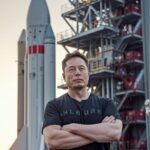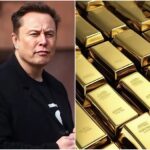In a remarkable turn of events, Tesla Inc. has recently experienced one of the most challenging quarters in its 15-year presence on public markets, losing over 36% of its value and erasing an astonishing $460 billion in market capitalization. Once viewed as a leader in innovation and a symbol of investor confidence, the electric vehicle (EV) manufacturer now finds itself embroiled in a financial and political crisis—largely of its own creation. The first quarter of 2025 represents Tesla’s third-largest quarterly decline to date, surpassed only by the final quarter of 2022, when shares plummeted by 54% during then-CEO Elon Musk’s tumultuous $44 billion acquisition of Twitter (now X). At that time, Musk sold over $22 billion in Tesla shares to fund the purchase, inciting panic among investors. Now, a similar scenario appears to be unfolding, albeit in a different context.
While Tesla’s declining sales in Europe and China, along with increasing competition in the EV market, have certainly played a role in this downturn, analysts suggest that the company’s most significant challenge may not be related to its vehicles but rather to political factors. Much of the first quarter coincided with Musk’s recent appointment as head of the Department of Government Efficiency (DOGE), a federal initiative established during the second Trump administration aimed at reducing government spending and streamlining bureaucracy. By late March, the DOGE program claimed to have cut federal expenditures by $140 billion. However, this figure pales in comparison to the $460 billion that investors have witnessed vanish from Tesla’s market value—a sum more than three times greater than DOGE’s reported savings.
This irony has not gone unnoticed. “My Tesla stock and the stock of everyone who holds Tesla has gone, went roughly in half,” Musk acknowledged during a rally in Green Bay, Wisconsin. Although he was ostensibly there to support a conservative candidate for the state Supreme Court, Musk found himself addressing the economic repercussions of his political engagements. “This is a very expensive job is what I’m saying,” he remarked to the audience.For shareholders, Elon Musk’s growing engagement in national politics and policy has sparked significant controversy. Once celebrated as an innovative CEO capable of managing multiple companies across various sectors, Musk is now perceived by some institutional investors as a potential risk. “Tesla investors did not intend to be part of a de facto political movement,” remarked Karen Holtzman, a senior analyst at Trident Capital. “Musk embodies a conflict of interest. It is untenable to lead a public company while simultaneously overseeing a government department, campaigning for partisan judges, and advocating for federal workforce reductions.”
Public trust in Musk’s leadership seems to be diminishing. Data from the car-buying platform Edmunds indicates that trade-ins of Teslas for other vehicles—both new and used—have reached unprecedented levels since Musk’s involvement with DOGE began. Compounding the uncertainty are increasing reports of vandalism against Tesla vehicles, which some attribute to the backlash against Musk’s increasingly politicized persona. Social media posts and viral videos have documented instances of Tesla cars being keyed, defaced, or otherwise targeted, contributing to the perception that owning a Tesla has evolved from a mere consumer choice to a political statement.
While Musk’s political shift may be dominating headlines, Tesla’s fundamental business is also facing challenges. Once the clear leader in the electric vehicle (EV) market, Tesla is now struggling to keep up with global competitors. This is particularly evident in China, where the domestic giant BYD continues to expand its lead. In the first quarter of 2024, BYD captured 32% of new EV sales in the Chinese market, while Tesla managed just over 6%. The reasons for this shift are varied. BYD has made notable advancements in fast-charging technology and vehicle affordability, addressing key issues that continue to affect Tesla’s products. Similar patterns are emerging in Europe, where established automakers and agile startups are inundating the EV market with alternatives that often better meet regional needs.”Every prominent technology firm has encountered challenges,” remarked Mark Coulson, an experienced tech investor. “Apple experienced its downturn. Amazon navigated its difficulties. The critical question now is whether Tesla can realign its mission and leadership, or if this marks the onset of a prolonged decline.” Coulson points out that despite a significant reduction in Tesla’s valuation, the company still maintains industry-leading profit margins, an extensive Supercharger network, and a solid presence in the U.S. market. However, restoring investor confidence will likely necessitate Musk reevaluating his priorities. “You cannot manage a trillion-dollar enterprise on a part-time basis,” he stated candidly. Tesla’s first-quarter downturn may ultimately serve as a warning regarding the risks of CEO overreach and the repercussions of intertwining business with politics. For years, Musk has challenged traditional norms, establishing himself as an invincible disruptor. Yet, Wall Street has its boundaries. Currently, it seems those boundaries have been reached. As the second quarter commences, all attention is directed toward Musk—not only as a business leader but also as a public figure whose decisions carry significant financial, political, and social implications. Whether Tesla can recover or if this signals the beginning of a wider disintegration may hinge not only on its offerings but also on the individual steering the company.

